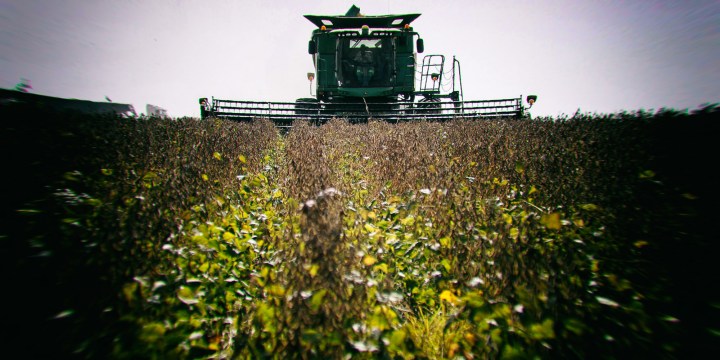FARMING JITTERS
Farmers lose confidence amid more pain for SA’s agricultural sector

Issues include geopolitical tensions, unrelenting Eskom blackouts, higher interest rates, poor road conditions and service delivery failures by crippled municipalities. Recently proposed changes to water legislation are also to blame.
South Africa’s agricultural industry, which contributes more than 2% to the country’s overall economic output, is in the doldrums. Confirming this are several industry players and newly published data on the industry’s performance.
Businesses operating in the agricultural industry are losing confidence in SA’s economic future. This is deterring them from investing in or expanding their operations.
Many problems can be blamed for this: geopolitical tensions, unrelenting Eskom blackouts, higher interest rates, poor road conditions and service delivery failures by crippled municipalities. Now, there is a new issue that has shaken confidence levels – the government’s controversial draft water regulations.
Water and sanitation minister Senzo Mchunu recently proposed changes to the Water Act. They will make water licence applications or amendments conditional on enterprises or farmers having a black shareholding of between 25% and 75%. This depends on their water use or storage. The process to amend the Water Act is open for public comment until 18 July.
There has been widespread criticism since the proposed changes were announced, with critics across the agricultural spectrum arguing that they would have a detrimental impact on the agricultural industry, increase red tape in government and deter much-needed investments into the industry.
These worries have begun to negatively impact on confidence levels in the sector, as reflected in the Agbiz/IDC Agribusiness Confidence Index, which, during the first two weeks of June, measured the perceptions of at least 25 agribusiness decision-makers on various aspects affecting the industry.
The index remained unchanged at 44 points in the second quarter of 2023, from the previous quarter. A reading below 50 points means that the commercial agricultural industry is downbeat about prevailing business conditions.
At 44 points during the second quarter of 2023, the index recorded the lowest reading since the second quarter of 2020, when Covid lockdown restrictions were in place.
The agricultural industry should, in theory, still be thriving considering positive market demand-supply dynamics. The year 2022 was good for the industry as crop prices and the demand for crops were relatively high, resulting in high export activity.
Exports reached a new record of $12.8-billion (about R234-billion) in 2022, up 4% from the previous year. SA also recorded its third-largest maize harvest on record in 2022/23. This positive momentum should still be felt in 2023.
However, policy and governance blunders are harming the industry, said Wandile Sihlobo, the chief economist of the Agricultural Business Chamber of South Africa.
“There remains great potential for growth in the sector, but that can only materialise if there is a favourable policy environment and supporting infrastructure. The recent draft water regulations are an example of policy missteps that South Africa would do well to avoid.
“Importantly, addressing the biosecurity issues, improving roads and opening more export markets are key to improving sentiment and the sector’s fortunes,” said Sihlobo.
More angst in the industry
Similar sentiments were echoed by Seelan Gobalsamy, the CEO of Omnia, a JSE-listed company that produces and sells fertilisers to the agricultural industry, along with explosives, blasting systems, chemicals for the mining industry and other products.
On 19 June, Omnia reported a 24% increase in revenue to R26.5-billion during the 12 months ending 31 March 2023, while its operating profit rose nearly a fifth to R1.89-billion, and the dividends it paid to shareholders increased by more than a third.
In the end, its profits (after paying taxes) fell by 14.9% to reach R1.152-billion compared with profits of R1.353-billion in 2022, which included earnings from discontinued operations.
Omnia’s agriculture business in SA is facing pressures, recording lower revenues and profits, reflecting the financial and operational challenges of its customers (including farmers) that couldn’t buy its products.
Gobalsamy has blamed adverse weather conditions in SA, volatile currency exchange rates and global supply chain disruptions.
“In South Africa and other parts of Africa, these disruptions were further compounded by infrastructure challenges as well as ongoing power outages,’” he said. Gobalsamy expects these problems to persist in 2023.
The agricultural industry started 2023 on shaky ground. When Statistics SA recently unveiled that the economy grew by 0.4% during the first quarter of 2023, two of the 10 sectors that it tracks didn’t record any growth at all.
Read more in Daily Maverick: South Africa’s economy narrowly avoids a recession
Agriculture was one of the sectors in decline, with its output falling by a massive 12.3% in the first quarter. DM/BM

















Comments - Please login in order to comment.